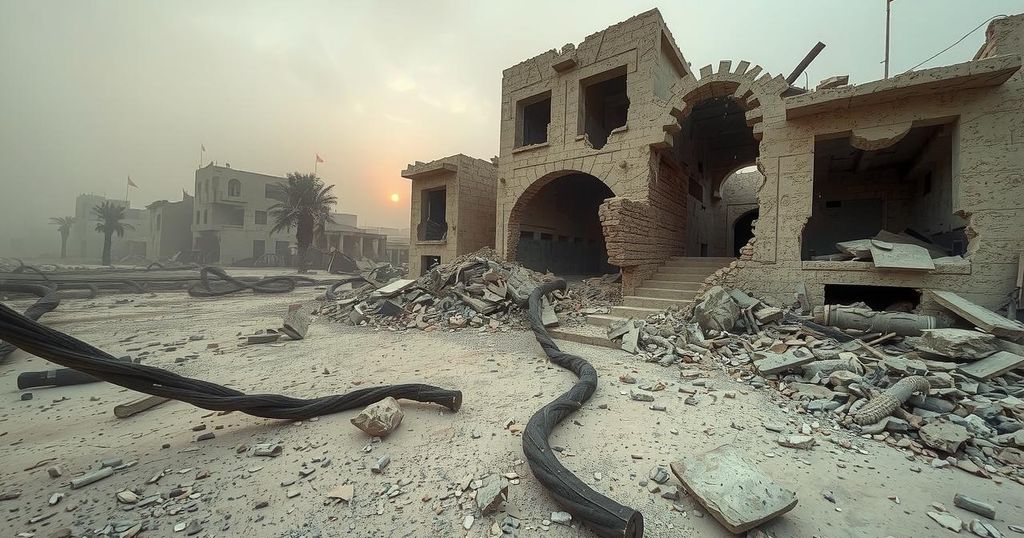Kuwait increased the minimum marriage age to 18 amid rising child marriage rates across the Arab world. Despite this, conflicts and societal norms continue to challenge efforts against child marriage. Oxfam stresses the serious ramifications of early marriage on girls, emphasizing the need for international advocacy and reforms. The situation worsens in war-torn regions, with millions affected by these practices. Organizations work to combat child marriage as a form of gender-based violence.
In an effort to enhance child rights, Kuwait has raised the minimum marriage age to 18, confronting the widespread issue of early marriage across the Arab world, especially in conflict zones. Despite these progressive measures, challenges remain significant, with ongoing conflicts counteracting advancements in legal protections against child marriage.
In February, Kuwait amended its existing marriage laws due to alarming child marriage statistics, reporting 1,145 cases of underage marriages in 2024. This legislative change aligns with commitments to international human rights conventions, recognizing child marriage as a detrimental practice that exacerbates gender inequality.
Hadeel Qazzaz, Oxfam’s regional gender coordinator, remarked on the devastating consequences child marriage has on education and autonomy for girls. She stated, “Child marriage is a human rights violation. It impacts the life of the child,” highlighting the long-term implications this practice has for young girls and their families.
Human Rights Watch has indicated that underage brides face heightened risks such as domestic violence and restricted access to healthcare and education. Approximately 70% of married girls aged 15 to 19 report experiencing violence from their husbands, underscoring the pervasive nature of these challenges.
The economic burden of child marriage also extends beyond individuals, with a 2020 IMF study suggesting the elimination of such practices could boost economic growth in developing countries by up to 1.05% annually. However, the issue remains prevalent in the MENA region, especially in war-torn areas, where statistical data reveals that approximately 40 million child brides reside.
The five nations with the highest rates of child marriage in the MENA region include Yemen (30%), Iraq (28%), Iran (17%), Egypt (16%), and Morocco (14%). Despite the existence of laws setting a minimum marriage age of 18, exceptions often undermine these regulations due to societal norms and legal disparities across regions.
Recently, amendments in Iraq have stirred concern by allowing marriages for girls as young as 9 under modified personal status laws. Dima Dabbous from Equality Now emphasized, “Fragmentation of laws creates loopholes that undermine the welfare of the most vulnerable, particularly girls.”
The roles of conflict and displacement magnify the issue, with Oxfam indicating that 2023 conflicts have intensified rates of early marriage. In Gaza, humanitarian crises have escalated the urgency of marriages, as families resort to such measures when facing economic strain and insecurity.
Yemen exemplifies a dire situation, lacking a legal minimum marriage age amidst ongoing civil conflict that has displaced millions. The socio-economic stress and cultural norms there have led to rampant instances of underage marriages, further endangering the rights and futures of young girls.
In Sudan and Syria, recent conflicts have exacerbated child marriage rates due to economic hardships and dislocation. Reports indicate that significant proportions of girls were already married as minors prior to hostilities, with war increasing these numbers drastically.
Efforts are being made to counteract these trends. Organizations like Oxfam are focusing on advocacy and education to address child marriage as a type of gender-based violence. Qazzaz noted, “Most of our feminist and women rights partners work on child marriage as a major form of gender-based violence.”
Through initiatives aimed at raising awareness and fostering youth activism, significant strides are being taken to amend social practices that endorse child marriage, advocating for girls’ rights to choose their future.
Kuwait’s legislative changes mark a positive step towards combating child marriage in the Arab world amidst ongoing challenges. The prevalence of early marriage continues to pose significant threats due to socio-economic factors and conflict. International and regional efforts remain crucial in addressing these issues and enhancing protections for vulnerable populations, particularly girls. Advocacy for raised marriage ages and education must remain at the forefront to pave the way towards equality and empowerment.
Original Source: www.arabnews.com




